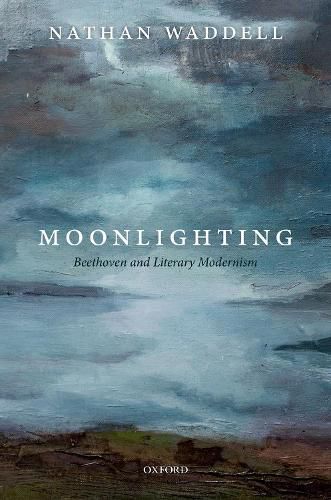Readings Newsletter
Become a Readings Member to make your shopping experience even easier.
Sign in or sign up for free!
You’re not far away from qualifying for FREE standard shipping within Australia
You’ve qualified for FREE standard shipping within Australia
The cart is loading…






Moonlighting offers a new and original account of how early twentieth-century Anglo-American modernist writers were influenced by the life and music of one of modernity’s most important and most celebrated figures: the German composer Ludwig van Beethoven (1770-1827). It isn’t a book that compares music and literature in the expected sense–that is, by charting how a modernist novel resembles a symphony, or how a modernist poem reads like a quartet sounds. Instead, it looks at how modernist writers drew on and used conventional ways of talking and writing about Beethoven to say important things not only about Beethoven’s rebelliousness, but also about the very rhetorical means with which the rebelliousness of Beethoven acquired legendary status. Once we understand that, we gain a much fuller understanding of how writers like E. M. Forster, Aldous Huxley, Wyndham Lewis, Dorothy Richardson, Rebecca West, and Virginia Woolf were creatively attuned to the categories through which cultural icons acquire their prestige. This book tells the story of how and why this matters.
$9.00 standard shipping within Australia
FREE standard shipping within Australia for orders over $100.00
Express & International shipping calculated at checkout
Moonlighting offers a new and original account of how early twentieth-century Anglo-American modernist writers were influenced by the life and music of one of modernity’s most important and most celebrated figures: the German composer Ludwig van Beethoven (1770-1827). It isn’t a book that compares music and literature in the expected sense–that is, by charting how a modernist novel resembles a symphony, or how a modernist poem reads like a quartet sounds. Instead, it looks at how modernist writers drew on and used conventional ways of talking and writing about Beethoven to say important things not only about Beethoven’s rebelliousness, but also about the very rhetorical means with which the rebelliousness of Beethoven acquired legendary status. Once we understand that, we gain a much fuller understanding of how writers like E. M. Forster, Aldous Huxley, Wyndham Lewis, Dorothy Richardson, Rebecca West, and Virginia Woolf were creatively attuned to the categories through which cultural icons acquire their prestige. This book tells the story of how and why this matters.